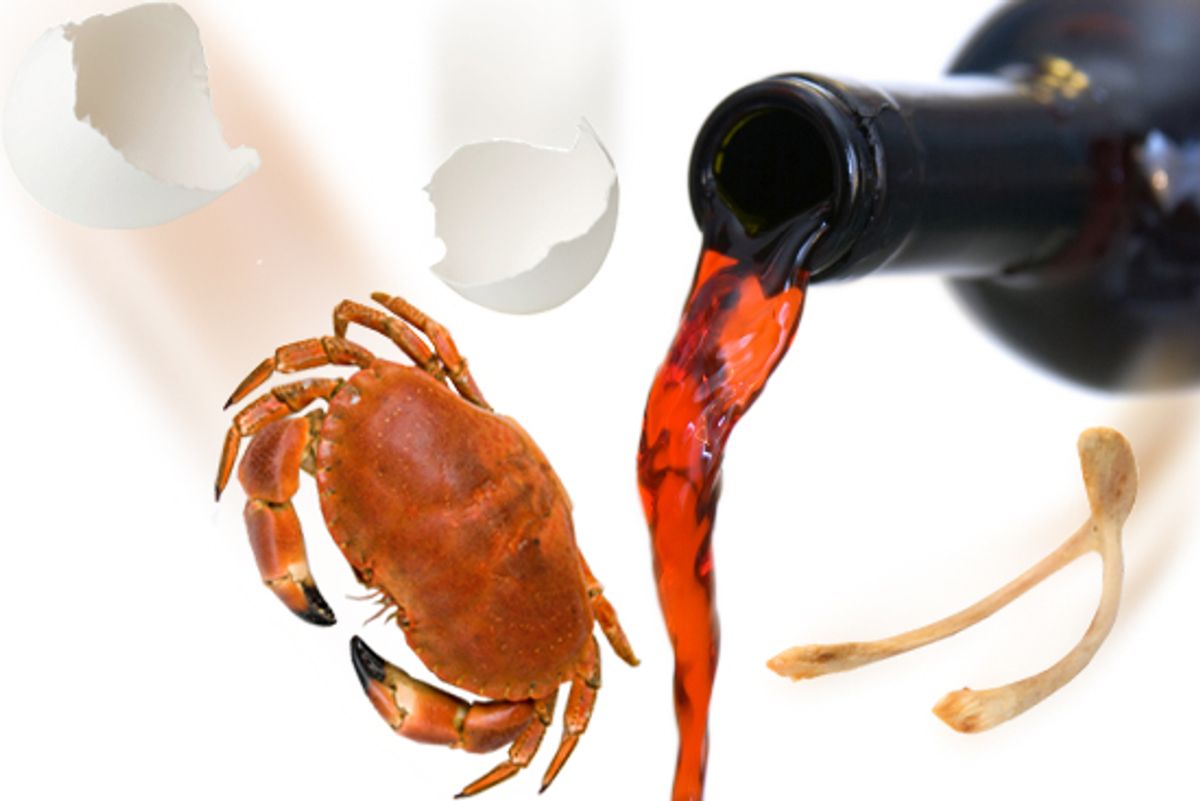One of the biggest problems with the old red-with-meat, white-with-fish wine pairing advice is that it entirely misses the boat on vegetables, and of course wines work beautifully with even vegetarian meals. But before we talk about pairing Syrah with seitan or Albariño with avocados, there's something you may want to know: not all wines are -- in the strictest sense of the words -- vegan or even vegetarian.
The fact is that while an increasing number of wines are technically vegan, a substantial number of wines still use animal-based products in the "fining" process: clarifying the wine by removing proteins, yeasts and solid materials that would otherwise make the wine cloudy and visually unappealing, or would even create off-flavors or aromas. Fining agents act as magnets for unwanted materials, and carry the glop to the bottom of the barrel or tank. Then the wine is "racked" -- poured off into another holding container, where the wine is separated from the solids. Racking is just like decanting, except on a humongous scale.
Fining agents typically used in wineries include egg whites, egg proteins, or casein (milk proteins). So far, this is good news for lacto-ovo vegetarians, but not for strict vegans. However, common fining agents also include gelatin (produced from animal bones), isinglass (made from fish bladders), and chitin (lobster and crab shells). And, while it's illegal in both France and the United States, some wine producers will even use bull's blood to fine their wines.
Fortunately, there are alternatives to animal-based fining agents. The most popular are bentonite clay, diatomaceous earth, and carbon.
With all fining agents, though, only near-undetectable traces of the material remain in the finished wine.
In that sense, the process is incredibly efficient, so some vegetarians or vegans may choose to overlook the fining materials used. But, of course, many may disagree on philosophical or religious grounds.
For those who want to make sure that the wine they drink has not been fined with animal and/or dairy products, a simple Google search for "vegan wines" will turn up more than 8 million hits. The first dozen or so sites will provide a substantial, if incomplete, list of vegan wines from all over the world to choose from and to make reasonably informed choices. If you question the fining agents used in some of your favorite wines, do not hesitate to ask your wine merchant or contact the producers of those wines (many have contact information on their Web sites).
One last note: A wine that is labeled as "organic," or made from organic or biodynamic grapes is not necessarily vegan, and wines made from grapes grown employing less sustainable methods may very well meet the vegan standard.
Check back on Friday for a guide on how to pair wines with vegetable dishes.



Shares